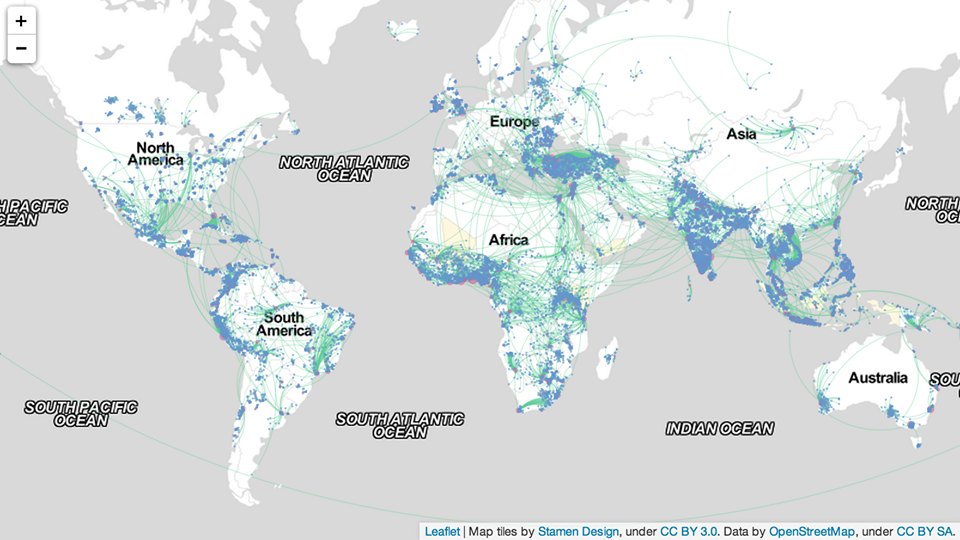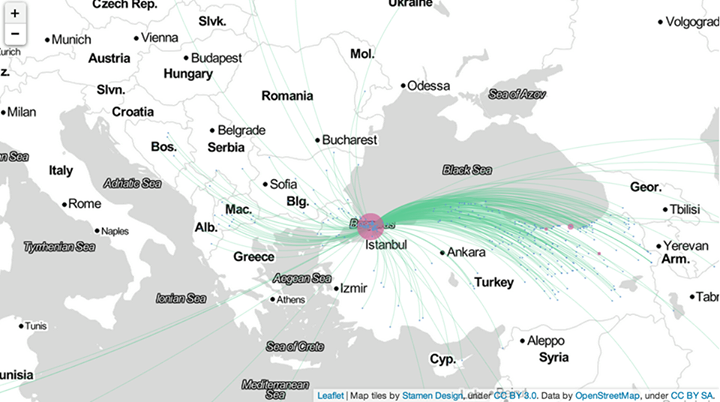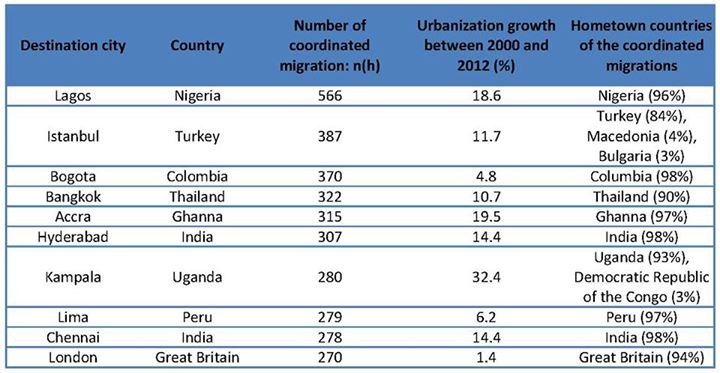Facebook’s Data Science team has published a blog post detailing “Coordinated Migration” as revealed by the social network’s users around the world. Coordinated migration, the team writes, is revealed when “a significant proportion of the population of a city has migrated, as a group, to a different city.”

Using the two simple data points offered up by some unspecified percentage of Facebook’s users, the Data Science team is able to demonstrate the gravitational pull that certain cities do or do not have on people in the surrounding region. “The study of coordinated migration focuses on cities for which the most likely current city is different from the hometown,” the team writes.

Rapidly urbanizing countries evince the highest rates of coordinated migration. The Data Science team offers this chart of the top destinations:

But data is a tricky thing, far less objective than some scientists make it out to be. “There are often multiple ways of looking at the same data,” former Apple developer Pete Warden told WIRED. “But because we can only publish the results, and not the underlying data we built them on top of, only one of those interpretations ever makes it out into the world.” Warden is currently the CTO of Jetpack, a digital travel guide startup.
Still, it’s a fascinating demonstration of Facebook’s surveillance power—or, as the Data Science team puts it, the “wealth of data suitable for the study of human mobility.”
And yet without allowing for external review of that data, any studies Facebook publishes must ultimately be suspect. Beyond making pretty maps, what is Facebook going to use this stuff for? Why would Facebook be interested in studying “human mobility?”
Probably because advertisers are. This is just one more tool Facebook can use to convince companies its data is their best bet for buying hyper-targeted ads.
H/T The Atlantic Cities | Photo via Rich Newsome/Flickr


